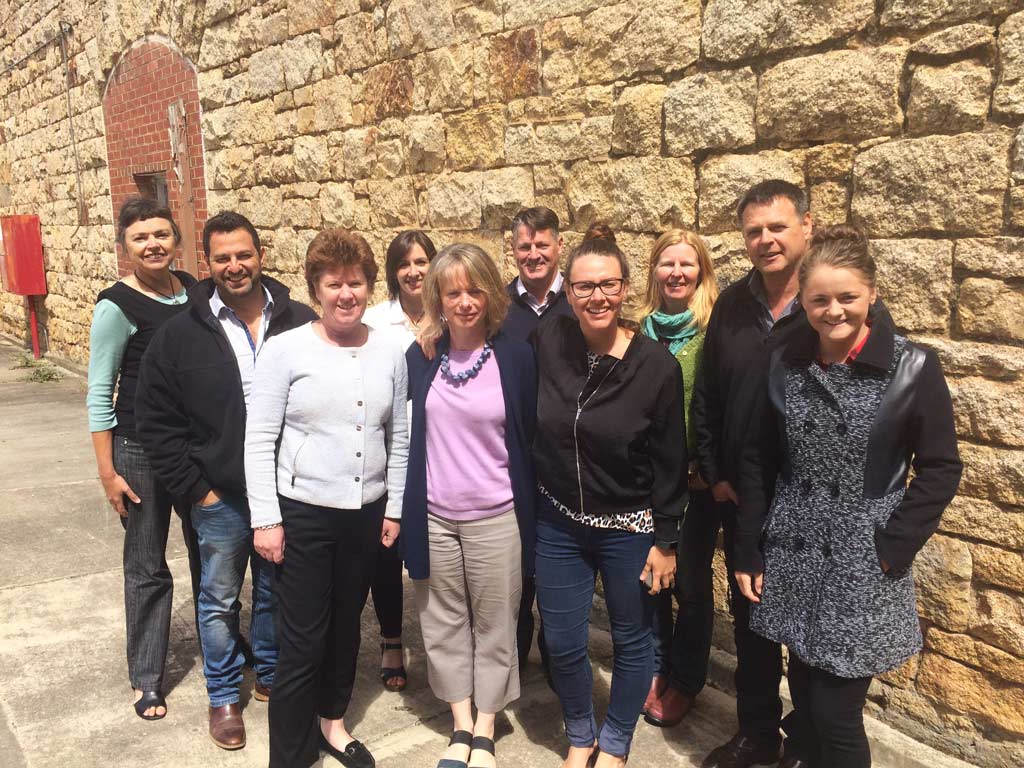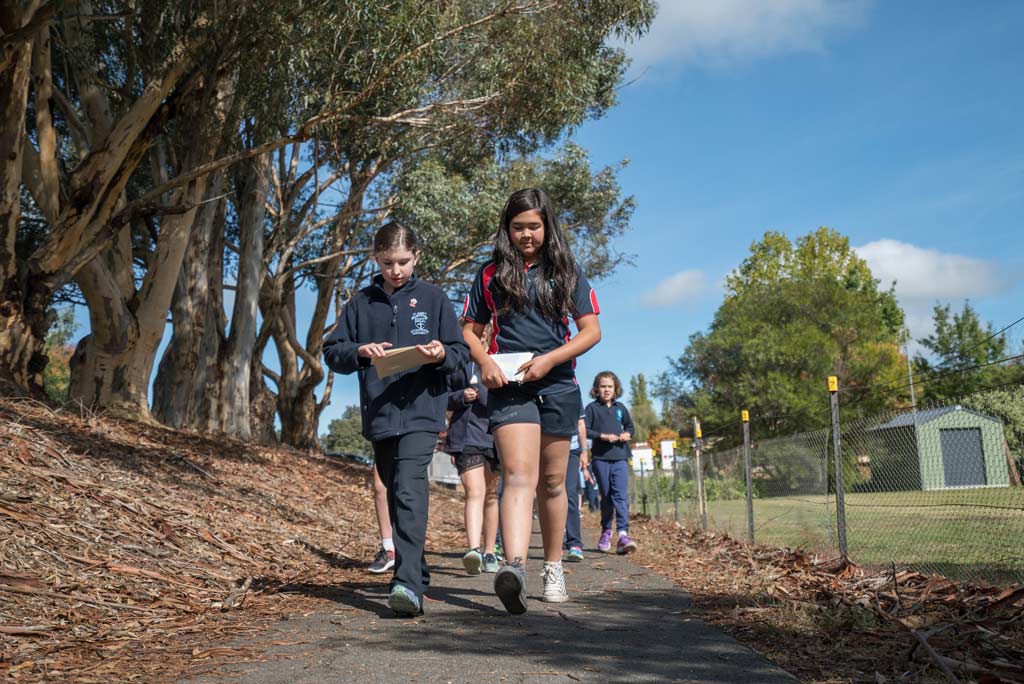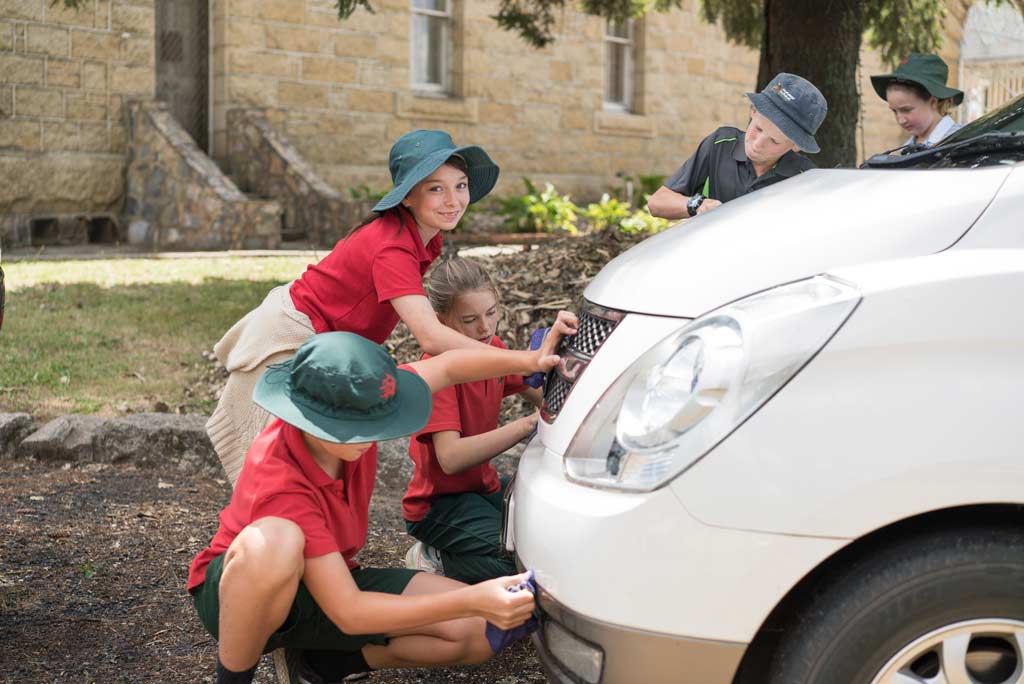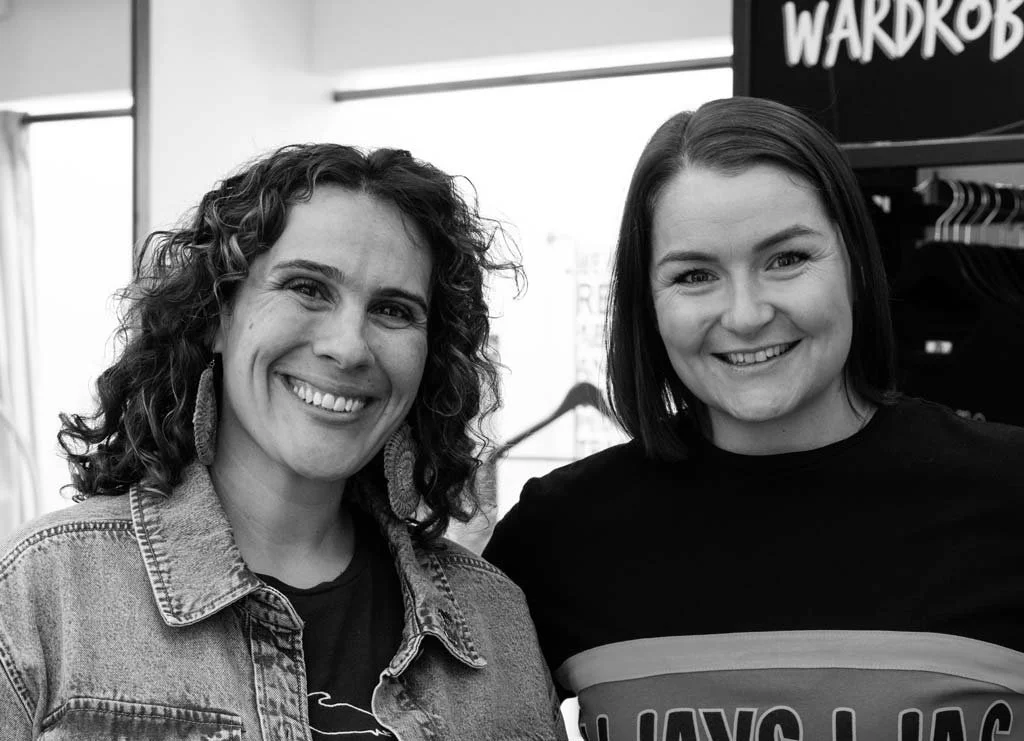Matt Pfahlert On The Best Approach For Organisations, Entrepreneurs & Government To Create Sustainable Change
One of Australia’s pioneering social entrepreneurs, Matt Pfahlert is helping to shape regional and rural Australia through igniting entrepreneurship in young people and their communities.
Matt started his first social enterprise in 1993 at the age of 23, working with ‘at risk’ young people in wilderness settings. His passion and drive for positive social outcomes saw him receive the prestigious Young Australian of the Year Award in 1996.
Motivated by a desire to create prosperous, healthy, thriving communities, in 2016 as co-founder and CEO of the Australian Centre for Rural Entrepreneurship (ACRE), Matt led a $2.5M community buy-back of the Old Beechworth Gaol. A neglected Australian heritage icon famed for its connection to Ned Kelly and the Kelly Gang and located in Matt’s hometown. The site is being re-purposed as an exemplar of social enterprise, impact investment and rural rejuvenation through community owned assets.
In partnership with Scotland’s world leading Social Enterprise Academy, ACRE operates the Social Enterprise Academy Australia, centred on training young people and communities to build sustainable enterprises and achieve greater social impact.
Matt shares important characteristics of communities which are generating positive social impact, discusses key traits of successful social entrepreneurs & provides areas of opportunity for government & organisations to activate positive change.
Highlights from the interview (listen to the podcast for full details)
[Tom Allen] - Could you please share a bit about your background and what led you to working in the social enterprise sector? [2:30]
[Matt Pfahlert] - I started my professional career as an outdoor educator and found myself working for big government programmes. In the late 80's, progressively they started closing down and I felt that the work we were doing was incredibly impactful, but expensive. And so, I found myself in a position where in order to keep going with this work, I started my own not-for-profit organisation.
I was really determined not to be relying on government funds because of what I had seen happening around me.
And so, as a result I decided that really, this is a community solution we're looking to for young people who are experiencing significant difficulties in their lives. So I thought, 'well wouldn't it be great if we took our community solution to the funding as well?' So, we developed a number of initiatives, which we now call social enterprises.
They weren't termed that back in the day, but it was like a furniture business where we sold a heirloom furniture range. We were doing bookcases, and foyer furniture, and really high end stuff for the corporate and community market. And we were also doing a Bush Furniture range that was supported by the participants in our programme and were selling them in Melbourne at the Southbank Market. And what I realise now was that that was social enterprise and a real calling card for being entrepreneurial and self determining. That actually encouraged a whole heap of partnerships that became, really our long term funders in the end.
As CEO of The Australian Centre for Rural Entrepreneurship, could you please tell us a bit more about the aims of this organisation and the types of projects you're involved in now? [4:12]
Yeah, so really what led to The Australian Centre for Rural Entrepreneurship starting was that...
while it's great to be in a not-for-profit organisation, you still at the end of the day are relying on donations and grants. And I found that incredibly exhausting.
When I left the organisation (in 2003) that I founded in 1994, I realised that we had 15 full-time staff and I was still relying on grants and donations and it was exhausting and no way to scale grants and impacts.
At the same time I was being encouraged to be a mentor for a whole heap of young people across rural and regional Australia, who had great ideas to start new initiatives. And quite frankly, I was quite burnt out and depressed.
It wasn't really until a couple of years later that I started to realise what I think is incredibly important, is that we do start to find a vehicle for encouraging young people with their ideas to get into... From ideas to activation. I didn't know what that looked like, but at the same time I was starting to really engage with the emerging social enterprise movement that was gathering momentum in the Northern Hemisphere and I thought, 'oh my gosh, this might be a way of actually creating a sustainable model by which you can create this impact you're looking for.' And I remember a time when I thought, what my career legacy really should be, that young people get an opportunity to, with their great ideas, to turn them into action. And really, that was how ACRE was born.
Fantastic, so ACRE is based at the Old Beechworth Gaol, which is a project you've led since 2013. So how has the space evolved since then and how are the community involved? [6:04]
2013 was a really critical time because even though I had the idea for ACRE in about 2003, in 2013 I teamed up with a local entrepreneur in Beechworth. A guy called Clayton Neil, who's our Co-Founder. And Clayton comes from a cycle tourism background and we were talking about the opportunity that Beechworth and our broader region has in the Southern Hemisphere around cycle tourism, and also that kind of industry development role for cycling. And so, in doing that we decided that what was really important around the future of rural entrepreneurship is to create models that are really quite tangible. And the community buy back of the Beechworth Gaol is that big kind of hairy, scary, tangible example of where we can take an asset that's been sitting there dormant in a community, and we can reimagine it with entrepreneurship, and in doing so create that kind of demonstration side. That really resonates with rural people.
My experience of growing up and working and living in rural communities my entire life is that Australian people have a really strong bullshit-ometer. And what I mean by that is that we hear stuff in rural Australia and we don't really believe it. It's only when we can see it and touch it and feel it that we go, 'oh okay this stuff's real and I can engage with this.' And I think that's how behavioural change happens, and so really what we're trying to do with repurposing the Old Beechworth Gaol is to prove that concept that communities can take ownership of their assets and repurpose them to be vibrant hubs that do become the anchors for the future economy, the social capital building, and also the creative industry's development.
There's some really exciting opportunities for that rural area, that's for sure. So, in 2013, Matt, you were awarded a Churchill fellowship to study youth entrepreneurship programmes and social enterprise models in rural communities in the U.K., in Canada, and the U.S. That was a great opportunity, but what were your key takeaways from that fellowship and how did what you learned change the way that you approach your work? [8:21]
Great question.
The key takeaways from going to the U.S., Canada, England, and Scotland, was that you've got to start young.
So, for all of them around youth entrepreneurship, it was starting as early as possible. So, in some programmes I visited, there were four year olds starting to learn entrepreneurial concepts. And it needs to be experiential. So, there's that continuous development of learning that becomes embedded in your culture. And it's not just programmatic, it's about building a culture and a community about this sort of stuff. I asked a person in the U.S., in Nebraska, why does it need to be experiential? And they said:
'name me one person that's ever won an Olympic gold medal by reading a book. Entrepreneurship is an action, it's something you've got to develop and hone and keep practising and training your entire life.'
And that really made sense to me.
The places that are really creating the most impact is where the community is involved, and all sectors are involved. And what I now understand is that there's about 90 years of innovation research, where a physical region has been innovative over a sustained period of time. And the only common ingredient as to why they've been able to sustain that innovation is because their business, government, community and educational leaders are working together on a plan.
And really, that's the big takeaway that I got from the Churchill, was that, it's not just about programmes. It's about bringing those people along for the ride. And so, the way ACRE has interpreted some of the things that we've learned from overseas is that we're starting young. The programmes that we're running start in primary schools, around grade five and go right through into secondary and VCAL and all those sorts of things.
We know that rural people agree only on two things; one is they agree on opportunities for young people and the only other thing they ever agree on is the place where they live. So regardless of whether you're a business influencer in your community, or a creative, or a government leader, you can agree that your place is something that you care about and want to thrive in the future. And we believe what we're doing is we're supporting those cross sector leaders to build that enabling environment in their local area, and at the same time bringing young people through to have a generation that sees themselves as job creators in the future, not just job seekers.
So combining those two things, we think is the secret ingredient for communities to reimagine themselves from within.
It's not a fly-in, fly-out scenario; it's just really looking through a different lens at what local communities really care about and what they want to reimagine and repurpose.
There are some really nice insights there. So, how do you see this rural, social entrepreneurship climate changing in the next five years then? [11:48]
There's certainly a groundswell at community level. We won a contract recently to deliver 'understanding social enterprise' workshops, where day one is theory and business models. And day two, a field trip and practise.
By deliberately curating those workshops where business leaders and community, government, educational leaders are learning together, you're starting to realise that they already understand that if they keep doing the same things they've already done, the decline is not just going to continue, it's going to continue more rapidly.
So, there is that good will and that desire to try something different. But we don't have the kind of infrastructure or the support mechanisms around communities yet to do so. So, that's partly our role; to support those communities, and particularly those key influences in those communities to crack on and do this sort of stuff.
And all of the information's out there, albeit the government's really slow to the table around this stuff.
So, a lot of our support is coming from what we've understood from our practise over the last 30 years, but also from models that we're engaging from overseas. So, for example, ACRE is the Australian agent for the Social Enterprise Academy learning programmes out of Scotland.
That organisation's been going for 12 years. It was set up by the social enterprise sector in Scotland and it's doing amazing work and is replicating into nine countries. And the great thing about that model is the principles behind the learning programmes are all so universal, in terms of peer to peer learning, using a strength based position to come from. But what happens in every country, is it's reinterpreted with a local, cultural context. So, we've been working with those guys for the last three years and developing accredited local facilitators to start delivering right across Victoria and it's very, very exciting times.
In interacting with a number of different social entrepreneurs on a daily basis, what do you see as the most important traits of a social entrepreneur? [14:11]
I think it's that dogged determination and an authentic passion around an identified problem they're trying to solve. There are a lot of solutions out there looking for a problem, and I think where people can cut through and are seen as authentic and determined, then the rest of the stuff can almost come in around them.
If the person is really trustworthy, they can bring people in.
So it's not just an ego exercise, but it's about genuinely trying to solve a problem.
I think the appetite of rural Australia is really strong to start putting some backing around the social entrepreneurs, who probably up until the last five years ago have been considered as the oddballs, or the nutters in our communities. Because they actually see the world differently.
And so, the new currency that those people have got through social entrepreneurship being seen as a valid lever for change is pretty exciting.
But you've got to have that determination, you've got to be there to really learn the things you need to learn to actually help solve the problem. You've got to be adaptable and you've got to be bilingual. You've got to be able to learn the processes and practises and disciplines of business, and the muscle of business.
Whilst also understanding the levers that relate to your field of influence around what you're trying to impact. You've got to be the real deal in both and that tension, and holding that tension and the complexities of that tension is also a really, really key skill for a successful social entrepreneur.
I think there's a lot to learn from that. Matt, just earlier you spoke about government being a little bit slow to the table within this sector. So, when looking at social enterprise from a policy perspective in Australia, what do you believe are the key steps that government need to take to help foster and support an innovative social sector? [16:17]
We understand in business that we need to have advice and support, we need to have learning and development programmes, we need to have networks, we need to have access to capital. But for some reason, we have a blind spot so far in relation to social enterprise.
But social enterprise needs exactly the same things as business. It needs to be treated seriously as a sector because over time it's going to save the governments of all persuasions huge amounts of money by social entrepreneurs unlocking business models that become sustainable in supporting previously marginalised and disadvantaged people into real meaningful connection and belonging and work in their communities.
And so, the Victorian state government is the only one to my knowledge who's actually got a strategy in place. Let alone a policy, a strategy just to say, okay these are the things that we would do if we were going to do something.
There's no excuse for government in not knowing how to activate this sort of stuff.
The Scottish government, for example, has had a national social enterprise strategy in place for over 12 years. It's got bipartisan support, it's had sustained funding and support in all areas of the ecosystem. And I think the time's ripe for government to start to get serious.
My biggest concern with government is they look for an angle.
So, instead of supporting what we know needs to happen, is we need to have a little bit of leadership development, we need a little bit of that advice and support, we need that access to capital piece, we need networks all playing a role together so it builds from within.
They usually try to look for an angle. What's the angle we can take on this? And they focus in on one small part and they never actually round out the entire pie. And that's my fear in terms of how government proceeds with this sort of stuff.
You mentioned Scotland having that policy in place. We were lucky to speak to Gerry Higgins recently about that and get his take on that too. But on that question, are there any countries that you believe are really leading the charge when it comes to social entrepreneurship or innovation, and what are they doing that you think Australia and other countries around the world could adopt? [18:48]
For me, in my area, Tom, which is rural and regional rejuvenation, Scotland are the standout. And where social enterprise has taken hold is in the rural and regional areas. So, parts of Scotland are incredibly isolated because of the distance but also the need to take ferries across the small isles and all that kind of stuff. And their economies have been decimated in the last 20 years, so they've had a real drive from within to look at models for change. And what's been so impressive. And the response that they've taken, is that the national strategy for social enterprise in Scotland has been co designed with the sector leaders. So, it's not this kind of top-down, bottom-up, never talking to each other, it's actually met in the middle. And to see that in action 15 years later and how it's actually impacting the lives of these rural communities is breathtakingly good.
And what's also impressive is, one of the government agencies in Scotland, the Highlands and Islands Enterprise, they're kind of like the equivalent of the regional development organisation in government would be in any of our states. But what they focus on is social and economic capital being increased and driven in rural communities simultaneously. Because they understand that if you've got a heap of jobs in an area but you're a really rubbish place to live, people will fly in and fly out.
But equally, if you're an amazing community but you've got no jobs, people will hang on and hang on, but eventually have to leave.
And so, as a government they've understood that those two things need to be built simultaneously. And so, what they do, is they have this no wrong door policy, where regardless of whether you're a community leader or a business leader, you can come to them and pitch your idea and get support to go to the next stage with it. Now, they don't care if it's a community festival that's not there to be a big business, but they also don't care if it's a big business as well.
But what they understand is that their number one job is to build capacity of the leaders in that group.
And so, even if the festival falls over, there's a great opportunity to have a new conversation with that group about what they can do differently next time to build their capacity.
And it is that attitude that has spawned a whole ecosystem of can-do in those rural communities, where regardless of what you're into, whether you're an artisan, or you're into the tech industry, or you're a farmer, you're a distiller, or you're a shopkeeper, you are valued as potential community and business leader in the future. And I think it's that kind of inclusiveness that Australia can learn a lot from.
Are there any inspiring projects or initiatives that you've come across within that area in Scotland or locally in your area, Matt, that you believe are creating some really positive social change? [22:11]
There's some amazing social entrepreneurs in Australia and I'd hate for anyone to think that we don't have incredible social entrepreneurship in this country. And I would almost call it heroic at times because people have done these things without any government policy support, any programmes, any help from whatsoever, just naysayers all around them. And one of my local heroes is a guy called Craig Marshall, from The Work Group based out of Shepparton. And that organisation started as a traditional training organisation for unemployed people but have really taken on a social enterprise pathway in the last 10 years. And they've built their earned income strings to a tune of around twenty-four million dollars of turnover. And they do stuff like traffic management, and event support, and event hire, and recruitment services.
That organisation employs over 250 people, of which about 40% come from a marginalised background, but they don't even consider that part as the impact they're making. The impact they're making is about the million dollars of surplus that they pour into youth development programmes to break the cycle of intergenerational poverty. And so, in our region, we've got a social enterprise that is directly donating into social programmes one million dollars in our region and it's under Craig's leadership that that organisation grows and grows and takes on more contracts and bigger contracts each year. And to me, he's an unsung hero.
That's really, really inspiring. So to finish off then Matt, what books would you recommend to our listeners? [24:25]
Well the one that's really good to read around the social enterprise side of how people are changing the world is The Power of Unreasonable People. And that's by John Elkington and Pamela Hartigan.
And it's a great book because they're people challenging the status quo and doing it in such way that you go, 'oh my gosh, the admiration I have for the journey you've been on is quite inspiring.' There is a pathway emerging and if there's one thing about that book is that there is that kind of culture of the social entrepreneur.
But what's been increasingly understood, as the momentum around social enterprises build, is it's about having an entrepreneurial team around you.
And if you read that book there's the identified social entrepreneur, but it's the people that they met along the way that actually was the team that allowed that entrepreneur to get that scale and broader success.
And to me that's the critical piece. In all of our communities we have people with business acumen, we have people who are great community builders, we have great entrepreneurs within government. And we're not accessing those in a team-like way.
And that book was the one time where I go, 'oh this is about actually getting the right people around you.'
And the other one is not a book, but it's a podcast and it's The Tim Ferriss Show. And he's got a new book called The Tribe of Mentors and it focusses on people who are interested in change or are at the top of their game in all sorts of fields. And every time I'm in the car I get something out of one of those little podcasts, it's fantastic.
Initiatives, resources and people mentioned on the podcast
- Gerry Higgins
- Highlands and Islands Enterprise
- Craig Marshall from The Work Group
Recommended books & resources
- The Power of Unreasonable People by John Elkington and Pamela Hartigan
- The Tim Ferriss Show
- The Tribe of Mentors by Tim Ferriss










